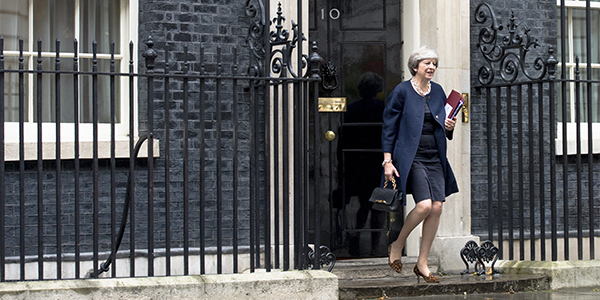In the dynamic landscape of British politics, one demographic has consistently garnered significant attention: the grey vote. Defined as individuals aged 65 and above, this demographic holds considerable sway in elections, often dictating policy agendas and influencing electoral outcomes. However, the disproportionate fixation on the grey vote has led to neglect of other vital segments of the population and hindered progress on critical issues. This article argues for a recalibration of political focus away from the exclusive targeting of older voters towards a more inclusive and comprehensive approach to policymaking.
The Dominance of the Grey Vote

For decades, political parties in the UK have recognized the electoral significance of the grey vote. With a higher voter turnout compared to younger age groups and a concentrated presence in key constituencies, older voters have been courted by politicians eager to secure their support. Policies such as pension reforms, healthcare provisions, and social care funding have often been crafted with the interests of older voters in mind, neglecting the diverse needs and concerns of other demographic groups.
Neglect of Youth and Future Generations
While the grey vote remains influential, the growing disenchantment among younger generations with the political process cannot be ignored. Issues such as housing affordability, student debt, climate change, and job prospects resonate strongly with younger voters, yet their concerns are frequently sidelined in favor of short-term policies targeting older demographics. This neglect risks alienating a significant portion of the electorate and exacerbating intergenerational divides.
The Need for Inclusive Policymaking
To address the shortcomings of the current political paradigm, there is a pressing need for inclusive policymaking that prioritizes the interests of all age groups. Rather than perpetuating a zero-sum game where the gains of one demographic come at the expense of another, policymakers must adopt a holistic approach that seeks to balance the needs of different generations. This requires a shift away from pandering to narrow electoral interests towards a broader vision that promotes social cohesion and intergenerational equity.
Challenges and Opportunities
While breaking free from the grip of the grey vote presents challenges, it also offers opportunities for innovation and progress. By engaging with a broader spectrum of voters and embracing diverse perspectives, political parties can foster a more inclusive political culture that reflects the complexity of modern society. Moreover, prioritizing long-term solutions over short-term electoral gains can lead to more sustainable policy outcomes that benefit the entire population.
Analysis Table:
| Issue | Impact on Grey Voters | Impact on Other Demographics |
|---|---|---|
| Healthcare Provision | High | Varied |
| Pension Reforms | High | Limited |
| Social Care Funding | High | Limited |
| Housing Affordability | Limited | High |
| Climate Change Policies | Limited | High |
| Education Funding | Limited | High |
| Job Prospects | Limited | High |
Comparative Table:
| Aspect | Focus on Grey Vote | Inclusive Policymaking |
|---|---|---|
| Representation | Exclusive | Inclusive |
| Policy Priorities | Short-term | Long-term |
| Interests Addressed | Narrow | Broad |
| Electoral Strategies | Targeted | Holistic |
| Social Cohesion | Limited | Enhanced |
Conclusion
The disproportionate focus on the grey vote has long dominated UK politics, shaping policy agendas and electoral strategies. However, this fixation comes at a cost, stifling innovation and neglecting the needs of younger generations and future cohorts. By embracing inclusive policymaking and prioritizing the interests of all age groups, politicians can foster a more equitable and sustainable political landscape. It is time to move beyond the grey and embrace a vision of politics that reflects the diversity and complexity of modern society.




